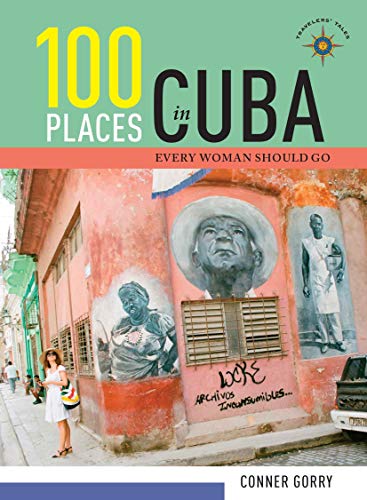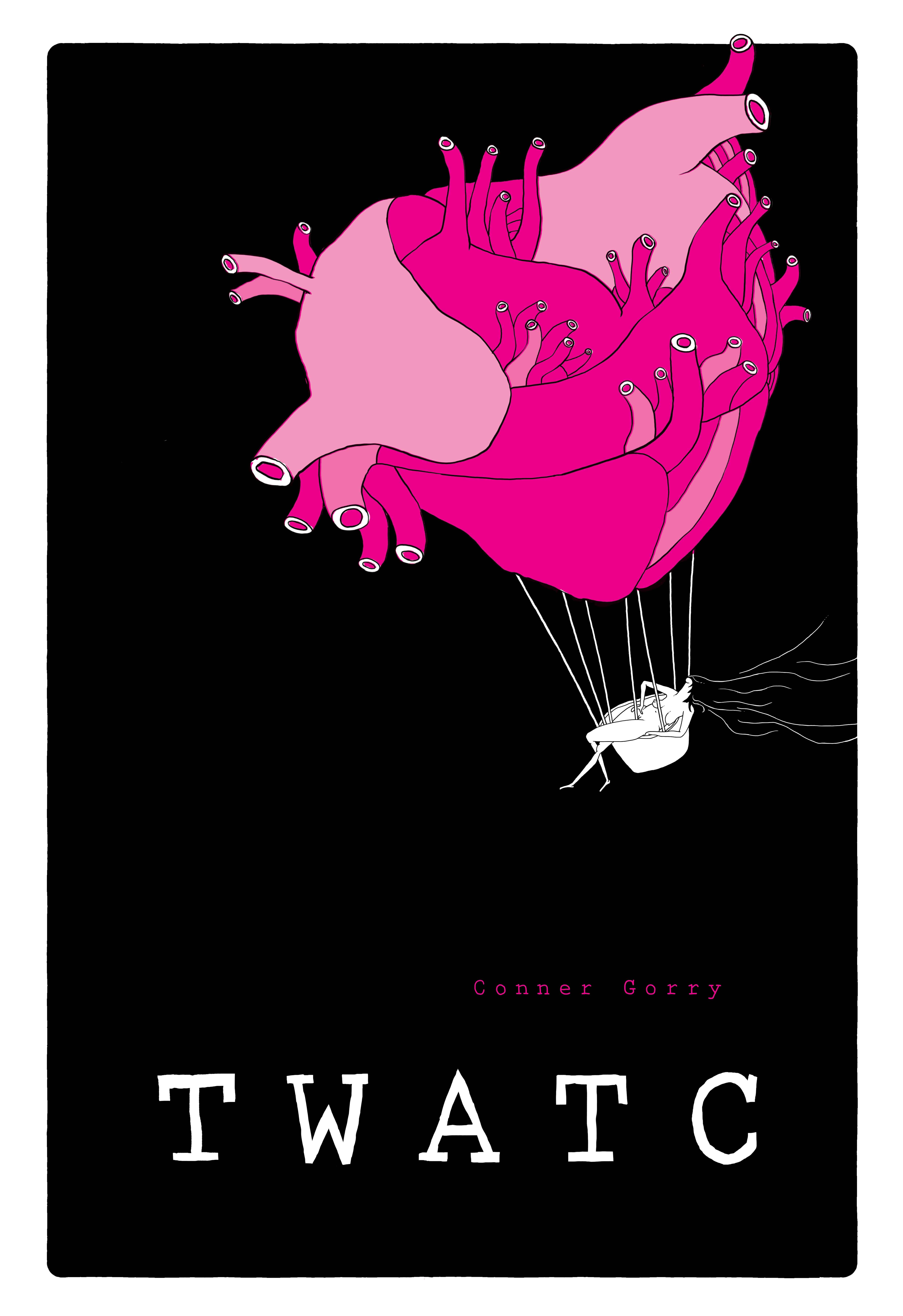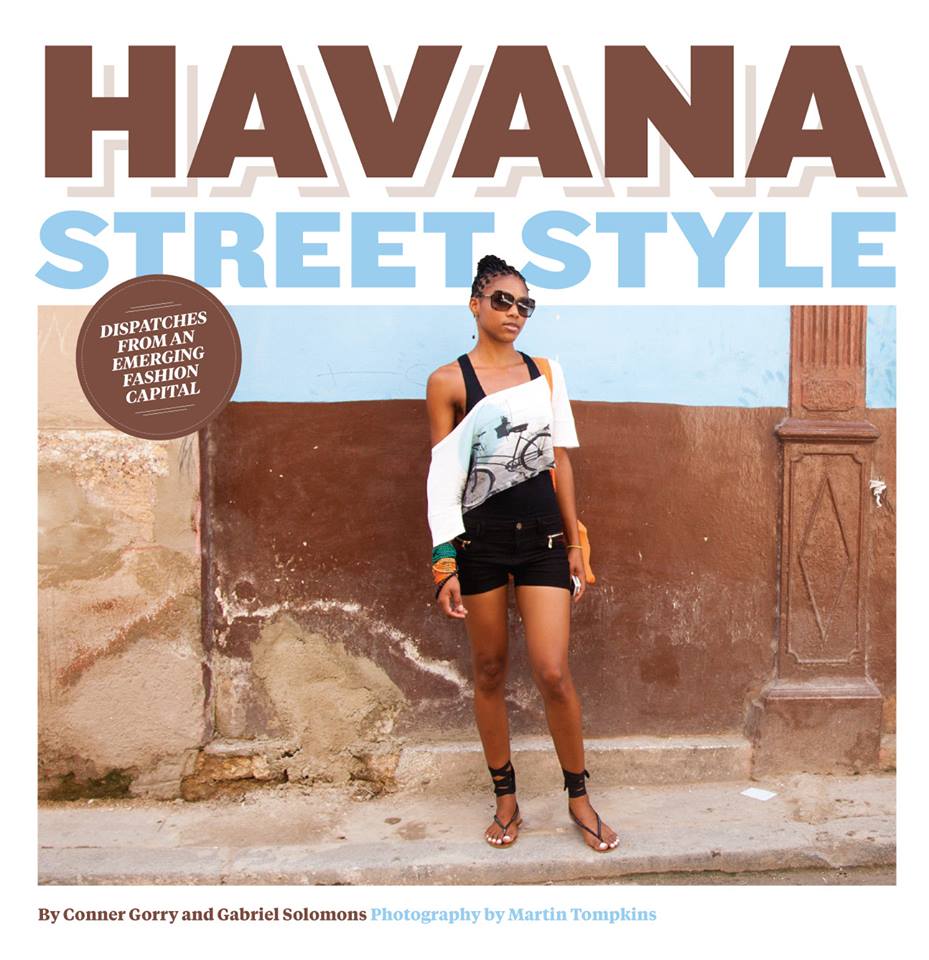Anyone who speaks a language foreign to their own knows what an embarrassing, ego-crushing, confusing and even dangerous proposition it can be. If you’ve poked around my blog a bit, you know I’ve had my share of missteps, malapropisms, and foot-in-mouth moments. Trust me: it sucks.
I figure I suffer more than most in this foreign-language-learning struggle for three reasons: 1) there’s a lot of static in that part of my brain wired for music and language (luckily I make up for lack of natural ability with pure tenacity); 2) as a writer, words are my medium and I’m spoiled in English, where I have many and varied options to express myself clearly and precisely (not that it always works). When you’re learning a foreign language, for instance, it takes time to learn how to say sneaker, stiletto or ballet flat, obligating you to default to the generic ‘shoe’ in the meantime; and 3) Cuban Spanish is far removed from the español I learned in university, Guatemala and the streets of NYC.
I often advise native Spanish speakers to prepare themselves for a different linguistic experience here, adding that they may encounter problems understanding Cubans. Clearly, asking directions, exchanging pleasantries, or ordering a meal/drink/bit of fellatio will be (or should be) straightforward enough for hispanoparlantes. But once conversations get cooking, seasoned with slang and dichos, oblique (for non-Cubans) historical/cultural/political references, and island particular vernacular, it can get tricky. Few people believe me, let alone heed my counsel (see note 1).
I can hear some readers scoffing across the World Wide Web. But take this exchange for example:
“¿Que bolá asere? Tengo pincha y me hace falta una botella. Tírame un cabo y te doy un pescao.”
Very simply, this translates to: Hey man. I have to get to work and need a lift. Help me out and I’ll give you 10 pesos.
See what I mean? Tricky.
Of course, every country has its own terms for this, that, and the other thing. Vocabulary varies from region to region and between cities as well. For instance, I recently took a straw poll amongst friends from across the USA, asking what they called the type of sandwich sold at Subway. In New York, we call it a hero. In other parts of the country, you’ll hear it referred to as a submarine, a sub, grinder, or po’ boy (which really is in a class by itself, as anyone who has feasted in New Orleans will tell you).
But although we have regional differences on the island, it’s much more complex. This way-with-words business goes beyond variable regional vocabulary since Cubans pepper their Spanish with terms of African origin (like the aforementioned asere); many American English words are in daily use, including lager, homerun, and brother, all uttered in a sultry accent; and entire syllables are regularly dropped (e.g. ño), while other words are contracted (e.g. equivoca’o). Needless to say, this complicates matters, as does Cuban-specific vernacular. Some of these words may be used in other Spanish-speaking countries, but probably not in the same way Cubans use them. Have insights? Drop me a line or submit a comment.
Almendrón – Old US car; almendra means almond. Almendrón is a big almond, which these cars resemble.
Bala, bata, petaca – Cigarette
Caña, fula and tabla – Every day terms, these are used to denote CUC or ‘kooks,’ the hard currency here. Other terms include chavitos (which I hear infrequently in Havana) and morrocota, used exclusively for the 1 CUC coins. ‘Fula’ has other meanings as well; see below.
Curda – Alcohol; can also be used as an adjective for someone who’s drunk.
Faster – Bicycle; also called a chivo.
Fula – Screwed up, twisted, somehow malevolent or damaged. Used to refer to situations or people: “¿Ella? Tremenda fula.”
Gabo – Slang term for house or home; also a diminutive of Gabriel, used most famously for García Márquez.
Guagua – Bus
Jama – Food; grub
Jeva/o – girlfriend/boyfriend
Nescafé – Nothing doing; no way, as in ‘did you two hook up?’ ‘¡Nescafé!
Pincha – Work, job
Run run – Word on the street; rumor; grapevine. Synonyms include radio bemba and la bola.
I could go on (and on), but I’ve got other work to do, deadlines to meet, and dreams to realize.
Me voy en fa’.
Notes
1. Anyone planning a visit here will benefit from learning a few phrases and sayings with the Cuban dichos app.











Sounds like talking with someone who mixes Yiddish with English.
What a Schemozzle, eh?
Buenos Dias Conner.
Que cambió ha dado el idioma que aprendieron mis padres y al que yo aprendí que fue igual. In Miami I feel lost communicating with our people who were educated after the exiles left in the 60s, to the ones educated and came over during Mariel to the balseros and even more recent. But such is the beauty of language that it is an ever changing, evolving way of life adapting to new thinking. I just wish a new English/Spanish (Cuban) dictionary were published. Thanks for the new phrases. I’ll get it one day. Keep it coming!!!!
Your friend in Miami
EXCELLENT, as always.
Being a Spanish native-speaker from Mexico, I know exactly what you’re talking about.
Speaking/hearing “cubano” is not that easy.
Here are some that always jump at me:
Java/javita: plastic bag
Saya: skirt
Carmelita: brown!!!
Bemba: lips
Menudo: small change ($)
Jines: pants
“Tírame una foto”: (throw me?) “Take a picture of me”
Paladar (for a cuenta-propista restaurant): hey! “Paladar” is the roof of the mouth or palate
And last, but not least: PINGA
🙂
Thanks for the input! Also for jeans: mezclia and petusa.
For me, a plastic bag is a jaba with a b (and Ive had a couple of Cubans complain to me recently how people are more frequently mixing up v and b)
and pinga – one of my all time faves and one I use often!
Regarding “faster”… I’ve also heard “fasten” for travelling by plane (as in fasten your seatbelts”)
“Gabo – Slang term for house or home”. It’s “gao”
😉
Good job. Keep it coming!
Thanks for reading and writing in Caney. Never heard ‘fasten’. That IS rich – do you spend a lot of time in the Oriente?! (joke a la habanera).
Seriously: Your insight (and corrections!) always welcome.
You’re more than welcome. And no, Santiago I only visited twice in 93 and since then, just Havana, my dear Havana. Ask around for “fasten”, you’ll see.
Two more corrections (sorry!): mezclilla and pitusa.
(BTW, I love to see Cuba Libro page, so many great things happening! Congratulations! 😀
I love seeing how Spanish is different in every country. I remember being in Chile and explaining to my Spanish coworkers what the Chilean slang meant- and having no clue how any of their Spanish idioms made any sense at all.
P.S. In several South American countries, guagua means baby (like infant). That’d be a mix-up indeed!
In addition to Radio Bemba, there’s Tele Chisme (literally “Gossip Vision”)
And Que Bolá? which means “what’s happening”. I know a pizza place by that name on J street just below 23rd.
Yes, as I say in my intro to this piece: que bolá asere?
Cuban is becoming a different language:
Last month I learned a few new (for me) expressions: “sin mariconeria” (without gay behaviour) and “tirame” (Phone me)
‘Mariconeria’ does literally mean ‘faggot-ness’ but people here use it more generally to mean without any slippery moves, trickery or waffling. Homophobic? Yeah. I should probably stop saying it.
I’m Cuban, but a lot of those terms/phrases are new to me, as if they were foreign . They were not in used at the time I lived there, decades ago. However, some like pincha I knew, asere too. Although when I lived there, asere was not used as much as it is today. Of course, guagua is the traditional word for bus, not only in Cuba, but in the Canary Islands and the Dominican Republic as well. Jeva is old as well, used in some other Latin American countries too. Almendrón, bala, petaca etc are new words. No idea they used the word pescao, actually pescado (fish) to mean 10 pesos, or tabla in connection with money. I still don’t know what fa means, as in Me voy en fa. Those are completely new phrases. Of course, the last time I lived in Cuba was 43 years ago. I visited twice after that, for three weeks each time, the last time over 15 yrs. ago and did not have enough time to get acquainted with the new vocabulary. I’m sure new words/phrases have been created in the last 15 years.
Hola Luis. Yes, always evolving down here, however slowly. Thanks for your comment. Me voy en fa refers to do, re, mi, fa….as in, Im out of here in 4 seconds. Have you heard: vamos echando?
Hi Conner,
Yes, I’ve heard vamos echando, that’s an old one. Thanks for the info re fa. So that’s what it means! Is No es fácil still used a lot? When I visited, everyone used that for everything, even for ending conversations.
Conner: it’s a never-ending story, all right. I think at least 75% of the expressions in my much-beloved and well-thumbed edition of EL HABLA POPULAR CUBANA DE HOY (Rogelio Santiesteban) are now derelict, and the book only came out in 1987! What the world really needs is a Cuban equivalent to urbandictionary.com, maybe.
PS my understanding of ‘tabla’ as applied to money is that it means 100 (whether CUC or CUP or euros or US$ or whatever).
One other favourite of mine though I don’t know how exclusively cuban it is: CHAMA for baby, child, kid, junior in the family.
The author is ARGELIO Santiesteban
The word for jeans is ‘pitusa’ not ‘petusa’.
The story I heard was that when the very first batch of blue denim showed up in Cuba, every pair had a label on the back saying ‘PITT USA’. Hence Pitusa!
It’s like ‘Panda’ in Cuba means a Chinese TV rather than the animal….
I left in 2006 and my sister who is here on a visitor’s visa, tells me phrases and words that I don’t understand, slang on the street is changing super fast.
My Spanish is quite proper (mom is a Spanish teacher and I love to read) and people don’t think I’m Cuban when they hear me but I love Cuban slang (like Pinga, of course forbidden at home growing up, or carajo, the only curse word my mom allowed was caramba)
Someone mentioned Carmelita above, another Cuban friend of mine had a Dominican friend laugh at her over the use of Carmelita and told her she needed to learn Spanish. Then I looked it up on the diccionary of the Real Academia de la Lengua Española and this is what I found:
carmelita.
(Del it. carmelita, y este der. de Carmelo, monte de Israel).
1. adj. Se dice del religioso de la Orden del Carmen, fundada en el siglo XIII. U. t. c. s.
2. adj. carmelitano.
3. (Por alus. al del hábito de los carmelitas). adj. Bol., Chile y Cuba. Se dice del color pardo, castaño claro o acanelado.
4. f. Flor de la capuchina, que se suele echar en las ensaladas.
So, Bolivia, Chile and Cuba make regional usage of the word, it exists 🙂
Philology was my fav subject in school 🙂 and defending Cuban Spanish is a hobby 🙂
Glad to have your blog back, I’m going to Cuba in August after 8 years, I’ll try to stop by at your libreria
How about: “vamos a descargar” which means let’s go party. If I remember correctly the word/slang “descargar” was around 2009? Maybe it isn’t anymore….
Another one is “morocota” which is the 1 CUC coin. And when dollars used to circulate in Cuba (before the CUC), “fula” was the word for dollars…
Hola!
Descargar is still heard once in a while; also used for venting/cathartic bitching. Ive been hearing ‘esta quemando’ lately for partying.
Love morocota (mentioned in the post) – it’s a great word.
Nice to find you, Conner! Love all this.
A couple of things: since 90s, we called parties “descarguitas”, among other names. Neighborhoods parks and peñas are (or used to be) the best places for “descargas” from many “trovadores”.
The word “descargar” increased its meanings. Funny how slang (as we ourselves) takes contradictory ways. “La pura me echó tremenda descarga” is in tune with “No me descargues patrás, asere” (both in the sense of scolding). However, you can hear a usual complain: “Fulana ya no me descarga”, meaning that she doesn’t go out with me anymore, she doesn’t like me anymore, chemistry is lost.
The word “mariconería” has gone beyond sexual orientation, although it was its birthplace. “Deja la mariconería y coge el pollo con las manos” (used here as refinement, squeamishness). When it’s used as fear (pendejismo) it’s heard: “¿Cuál es la mariconería, bróder? Acaba de sacarte la muela y no jodas más”.
“Mariconá” is a whole different story, even thought is a similar word.
“Morocota” (sometimes “morrocota”) also refers to 1 CUP coin (not only CUC).
Y voy echando, que si me embullo me quedo descargando con la aplatanada más bolaísima del mundo.
Gabo
Hello! I realized this is a longshot of a question here, but do you know of any apps or websites that offer cuban spanish phrases with a verbal recording to listen to? I downloaded the app you recommended but since I don’t speak Spanish, I also don’t read it. Was hoping the app would have verbal recordings — perhaps I missed something? Thank you in advance! I’m looking forward to my first visit soon!!
Cheers
Hi there. Unfortunately, I dont but since Spanish is phonetic and Cubans are pretty gracious with people at least trying to speak their language (although I STILL get made fun of frequently, after 12+ years!) if you throw out a couple of the dichos on that app, you’ll get barrels of laughs and help. have a great trip!
What really messes with my mind is the Cuban use of coger. A Cuban went to México. He said, “¿Donde puedo coger un taxi?” Y le contestaron,
“Bueno, por el tubo de escape, supongo.”
YEah, we ‘coger’ (to fu*k in other spanish speaking countries, but NOT used here for carnal encounters) everything here!
Ese hablaito de la calle en la habana se llama cheismo…son unos cheo…
hay un libro se titula:asi hablaba Cuba
Jose Marti o el padre de la patria; Carlos Manuel de Cespedes no hablaban asi.ni los humildes tampoco hablan asi.
Quiere decir que no tengo humildad? en que sentido? me extrano este comentario. Tanto que voy a preguntar a mis lectores:
Tell me readers: do you find me un-humble? This guy does and felt moved to comment on it TWICE.
“A palabras necias, oídos sordos,” Conner.
I don’t know what bug crawled up this reader’s ass but you are as humble as it gets. I think taking the dive into Cuba that you decided to take years ago was one of the most humbling experiences anyone can get. So…. there. Queen of Humble (and a magnificent blogger). Queremos MAS!
Un beso
GRacias amigo. Moving to a foreign country like Cuba and en la luchita 13 years? Humbling: yes!! thanks for the back up!
La mayor virtud del ser humano es la humildad.
El 66% de cuba es desendiente de Espanoles.
Otra cosa la habana no es cuba,Cuba es la isla completa.
GRacias por subrayar este elemento. Siempre digo que la habana, aunque es la capital y tiene 70% de la economia del pais, NO es Cuba. Fuera de la Habana hay otras experiencias, perspectivas, opiniones, desafios, recursos, etc.
Love this page, I lived in la Habana for 3 years, working for the U.S. Although born in NYC of Puerto Rican parents, believe me I felt right at home in spite of all the stuff going on.
I really liked it. The first colloquial phrase is great and I laughed a lot. One word should be corrected: home/ house is gao not gabo.
Hiram, I’ve already mentioned that in one of the first comments…
Pingback: Say it in Cuban
Pingback: Carnal Delights in Cuba | Here is Havana
Pingback: Conner Gorry on Living in Cuba as An American Ex Patriot
Also, I don’t know if you can listen to the song (it’s on YouTube, Putumayo CD), there is a line where it sounds like ‘Ay yo uso’ and another one that sounds like ‘Je, Enu, Si la pachanguera ebua muchacho.’ I understand but what is ‘ebua’? And the last one sounds like ‘Ay pero ven a gozar con era de él que transforma tu amor’. I understand all but I think era must be incorrect. I can’t figure out the right word. Many of us gueros love the song and want to sing it and also understand it. I’ve typed it all out and researched but could only get 90%.
nope, no You Tube for me on dial up internet. sorry I can’t help w translation
hi
i found your blog while googling javita/jabita…
what about cederista (chismoso, busybody, from comité de la defensa de revolución, neighborhood committees against counter revolutionary attitudes)
or papaya/fruta bomba, which always raises a chuckle
my cuban friends find it funny when i greet them with “que bolà?” or “como anda’ ?” (with the ‘s’ cut off at the end of ‘andas’)…..
Hi there
Ive written about papaya/fruta bomba — and was pretty shocked when the waitress at La Guarida interrupted an explanation I was giving to a table of tourists about the “papaya pie” they have on the menu to tell me that it’s not true that people don’t use the word papaya for the fruit. “You’re not from Havana are you?!” I asked (in the Oriente, it IS called papaya but not here). She slinked away!!
One phrase that does not come to me naturally and that I don’t use, even after 20 years, is ‘que bola?’
thanks for reading!